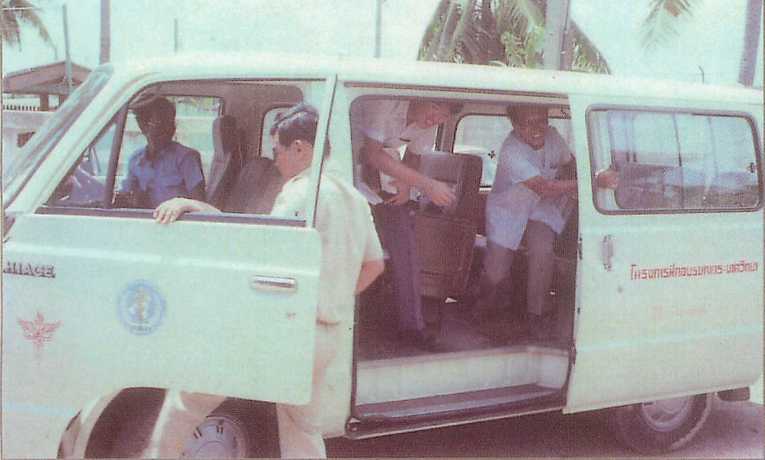Thailand: Field Epidemiologists Fight Global Health Threats

Van from Ministry of Public Health to transport trainees to the first investigation, 1981.
Following the success of the Thai partnership, requests for epidemiology training began pouring in from other nations. Over the past three decades, FETP has grown to reach over 70 countries, helping to address the serious worldwide shortage of skilled epidemiologists by building a pool of public health workers who can use data to detect and respond to disease outbreaks.
Today, more than 3,100 FETP graduates report success from all over the globe. Nearly 85% of program graduates serve in their home countries where they respond to some of the world’s most urgent health events, including:
- Ebola virus in West Africa
- MERS-CoV in the Middle East
- Polio in Pakistan
- Cholera in Bangladesh
- Acute encephalitis in India
- Earthquake recovery in Haiti
FETP invests in a long-term process of developing relationships within countries, building solid partnerships that lay a foundation for sustainable work. Thirty-five years of collaboration between the Thai ministry and CDC have fostered a sense of trust that makes it easier to overcome challenges that arise, like how to share data while maintaining confidentiality or how to meet timelines while respecting each organization’s needs. Clear and frequent communication between partners is vital to the program’s success. By exchanging ideas and cultivating networks, the program opens doors to other important initiatives that improve people’s health both regionally and worldwide.
About This Story
This story illustrates Thailand’s commitment to meeting the Global Health Security Agenda’s Workforce Development target, including at least one trained field epidemiologist per 200,000 people worldwide. CDC estimates that an additional 29,000 field epidemiologists are needed to fulfill this goal.
Thailand’s 35-year partnership with the U.S. Centers for Disease Control and Prevention (CDC) through the Field Epidemiology Training Program (FETP) has resulted in a proven example of how disease detectives are critical to stopping outbreaks before they become epidemics. Thailand’s FETP offers a road map for other countries in the region to develop a trained workforce and regularly shares experience and expertise across the region.
Related Links
- Page last reviewed: February 10, 2016
- Page last updated: February 10, 2016
- Content source:
Global Health
Notice: Linking to a non-federal site does not constitute an endorsement by HHS, CDC or any of its employees of the sponsors or the information and products presented on the site.


 ShareCompartir
ShareCompartir